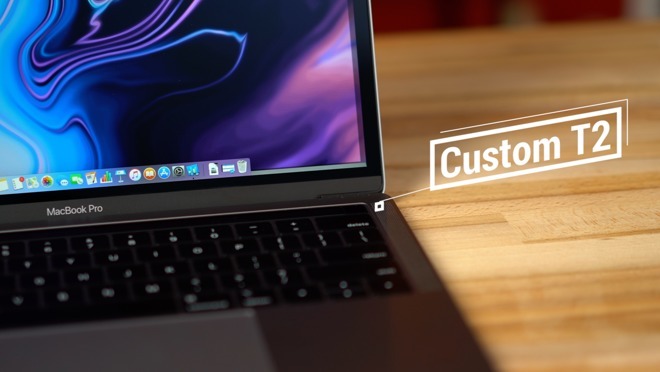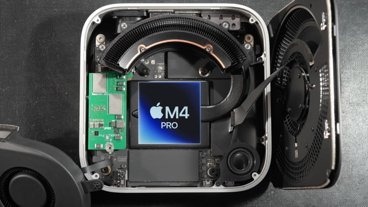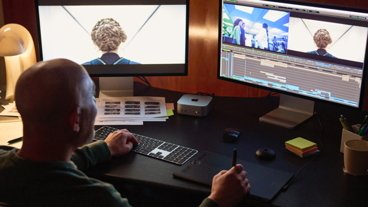Macs equipped with Apple's T2 coprocessor are causing serious problems for some people using Thunderbolt and USB professional audio interfaces, whether for sound or video work.
Those affected by the issue are encountering dropouts, pops, and other similar issues with gear brands like Apogee, Focusrite, Native Instruments, Yamaha, RME, and MOTU, according to complaints on Reddit, Logic Pro Help, Apple's support forums, and elsewhere. USB interfaces have been the most commonly impacted, but trouble may manifest to a lesser extent with Thunderbolt hardware.
Apple is reportedly aware of the glitch, as are manufacturers like RME, which have linked the problem to macOS. The cause could have something to do with macOS' system time daemon, "timed," as some people have reported success by unloading it. The daemon returns once a Mac is rebooted, however.
For audio professionals the issue may make a Mac difficult to use in recording, and simply unusable for live performances. It isn't clear at present how many are impacted by the issue, as it does not manifest universally.
The T2 chip controls a variety of Mac subsystems, including boot and security functions. It has already been blamed for some other troubles, including kernel panics, Mojave installation errors, and interfering with third-party repairs.
Macs with the T2 chip include the iMac Pro and 2018 models of the Mac mini, MacBook Air, and MacBook Pro. AppleInsider has reached out to hardware vendors and Apple regarding the matter, and has not as of yet received a response.
 Roger Fingas
Roger Fingas








 Christine McKee
Christine McKee
 Marko Zivkovic
Marko Zivkovic
 Mike Wuerthele
Mike Wuerthele

 Amber Neely
Amber Neely
 Sponsored Content
Sponsored Content
 Wesley Hilliard
Wesley Hilliard









48 Comments
Is this what is also causing the Adobe Premiere Pro "blown speakers" audio problems on MacBook Pro, or are they two separate software related issued? I'm really starting to wondering if it's time to move to Windows for professional work. I bought the hype at the Intel processor shift and there were a few really great years, but things are not what they used to be.
Neither Windows not macOS are Real Time operating systems. https://en.wikipedia.org/wiki/Real-time_operating_system "